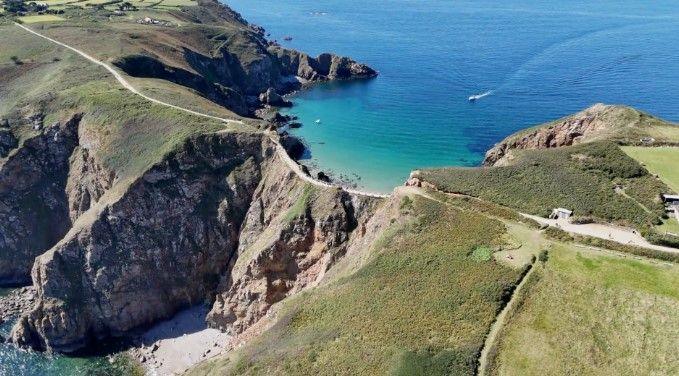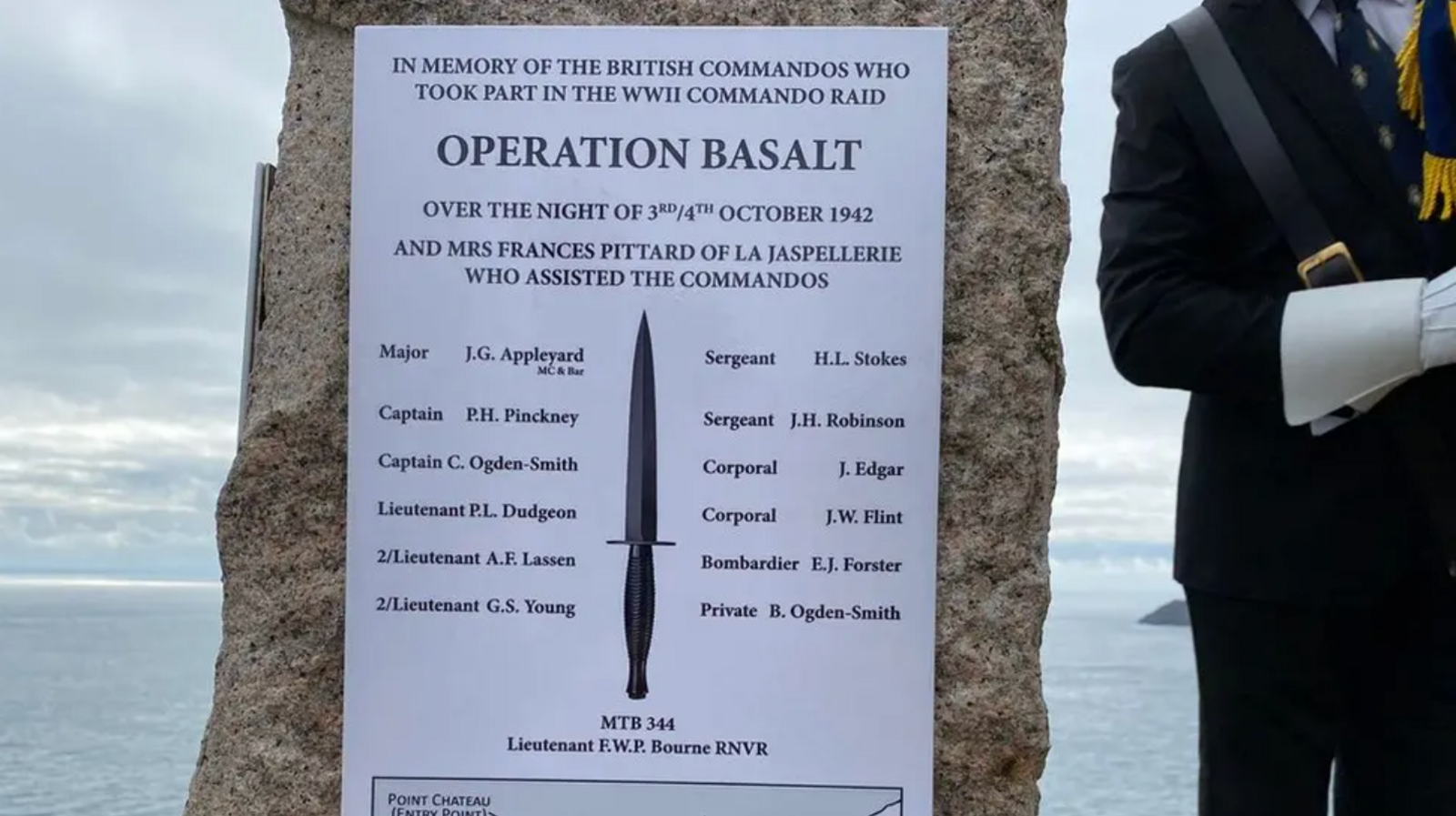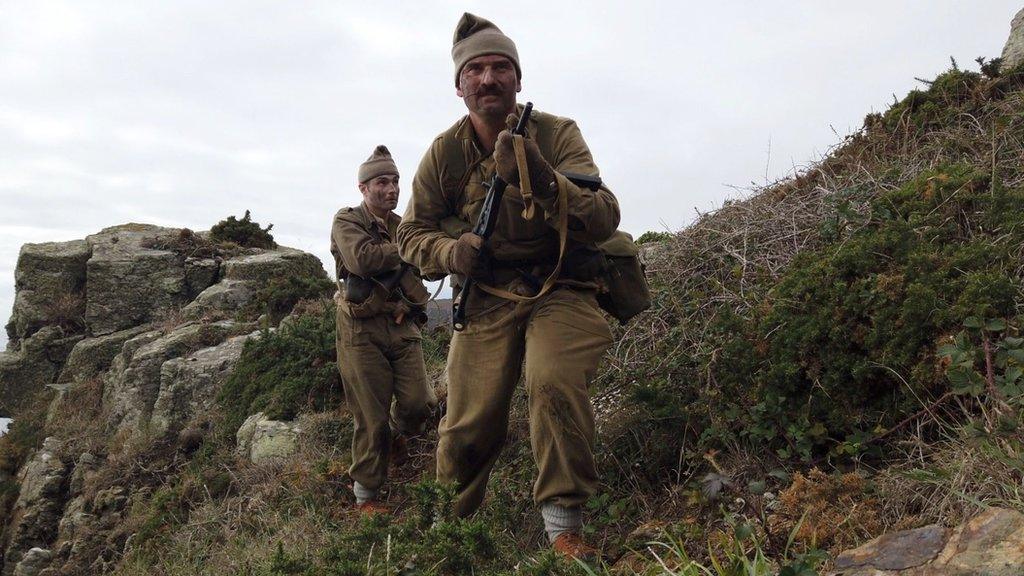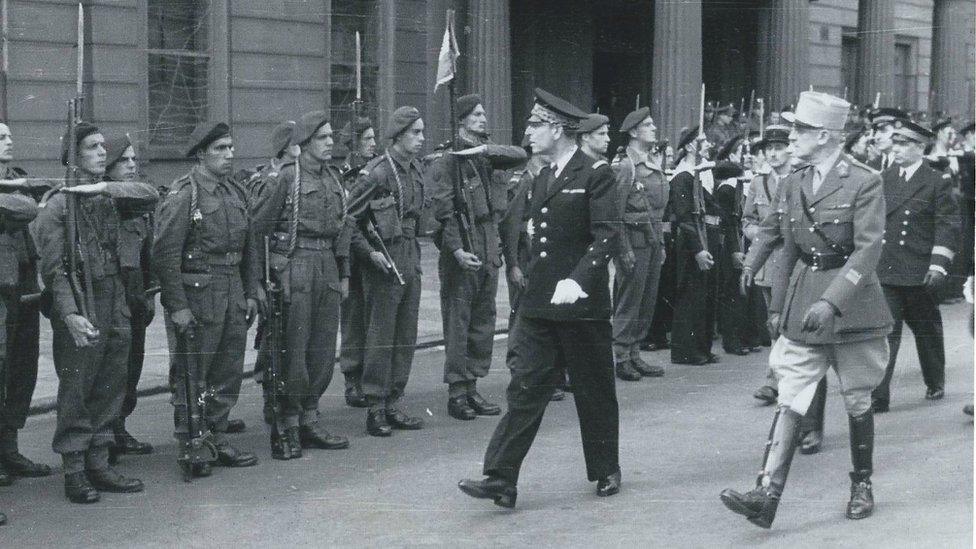Allied raids on Sark 'helped islands' liberation'

Sark was liberated on 10 May 1945
- Published
Intelligence gathered by Allied commando raids during World War Two in Sark helped the liberation of the Channel Islands from Nazi occupation, says a historian.
Following the raids, called Basalt and Hardtack, more rules and restrictions were imposed on Sarkees by the Nazi occupiers and more people were deported to Nazi Germany.
Historian Nick Le Huray said: "I think it's important we keep telling these stories just so we don't forget what these people went through, and the civil population of Sark - it had an impact on them too.
"A lot of them were moved from where their houses were into the centre of the island and some of them were sent to Guernsey so it had a massive impact on them."
What was Operation Basalt?
Operation Basalt was a commando raid that took place on Sark on the night of 3 October, 1942.
Twelve commandos landed on the island by boat and were led by Major Geoffrey Appleyard - thought to be one of men that inspired Ian Fleming's James Bond - who scaled a cliff at Hog's Back.
He had been a regular visitor to Sark before the war and was charged with finding out about the Nazis' defences, taking prisoners for interrogation, and discovering how islanders were being treated.
Reliant on pre-war maps and with little knowledge of the situation in the occupied island, they broke into houses.
Sark resident Frances Pittard told them about the 300-strong garrison of Nazi soldiers and a small group staying at the Dixcart Hotel. She also gave them newspapers printed in Guernsey.
Later, when her actions were discovered, she served time in prison in Guernsey before being deported to an internment camp in Germany.
The commandos killed the sentry at the Dixcart Hotel and captured five sleeping engineers.
While trying to subdue the men, by tying their hands, they fought back and two of them were shot while trying to escape.
The raid was among those that led to Adolf Hitler's "commando order", which called for any captured men to be executed.

One of the plaques that lists the names of the 12 commandos who took part in the raid
With the alarm raised and the approaching dawn, the commandos took their one remaining prisoner - the commander of the engineers - down the cliff to their boat.
The engineer provided information about Sark's defences and also about the French coast, because his unit had been stationed there recently.
From the newspapers, they learned of the deportation of civilians to internment camps in Nazi Germany.
In response to the raid, an extra 13,000 mines were laid in Sark. However, this proved to be disastrous for a follow-up raid in 1943, Operation Hardtack, which resulted in two commandos being killed and others wounded.
What is Operation Hardtack?
There were nine planned Hardtack raids by the Allies over a four-day period in the Channel Islands. The first was in Jersey on Christmas Day 1942.
In 1943, eight commandos were attempting to scale Sark's steep cliffs for the second time in 48 hours.
Armed with a rudimentary map, Sgt Andre Dignac, a Frenchman nicknamed Tarzan because of his climbing ability, led the group up the cliffs successfully under cover of darkness.
They then encountered a minefield, which killed a French commando, Cpl Robert Bellamy.
Sgt Dignac was also wounded by an exploding mine and died shortly after.
The commandos attempted a retreat, escaping through the darkness, with mines detonating around them.
Three others were injured, but they made it out of the minefield to their motor gunboat and back across the Channel.
Both Sgt Dignac and Cpl Bellamy were buried in a small military section of Sark's cemetery on 30 December that year.
A timeline of the Channel Islands' occupation
28 June 1940, the Luftwaffe bombed Jersey and Guernsey, unaware that the islands were undefended, killing 44 people
30 June to 25 July 1940, Nazi German forces begin their occupation of Guernsey, Jersey, Sark, Alderney and finally Herm (although troops were not stationed there)
6 June 1944, following the D-Day Normandy landings, food lines were cut between the Channel Islands and Nazi-occupied France
27 December 1944, the Red Cross ship SS Vega begins delivering food parcels as the islands begin to starve
8 May 1945, VE Day, but German forces do not yet surrender
9 May 1945, Liberation Day, unconditional surrender signed by Nazi German command in the Channel Islands
Follow BBC Guernsey on X, external and Facebook, external. Send your story ideas to channel.islands@bbc.co.uk, external.
Related topics
- Published3 October 2022

- Published26 December 2018
